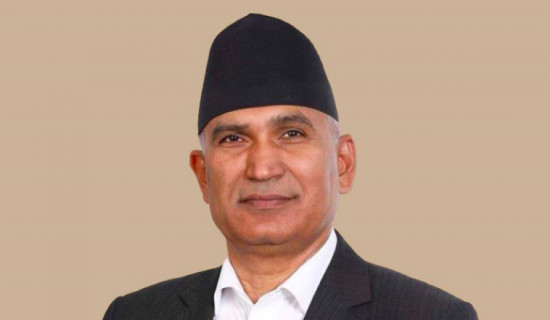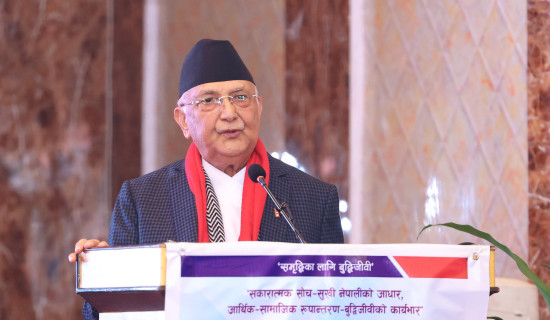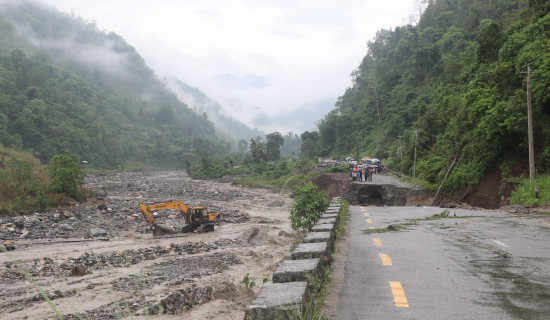- Sunday, 1 June 2025
Ninth Constitution Day: Power devolution essential to make province reliable, robust: Sudurpaschim Chief Minister Shah
Sudurpaschim, Sept 20: The present constitution has completed nine years of its promulgation. This is the constitution drafted by the elected people's representatives in the Constituent Assembly. The federal democratic republican system of governance is gradually institutionalizing with the three tiers of the government functioning.
The devolution of the state power among the three levels of the government- federal, provincial and local – unlike the centralization of the past, is the most important aspect of the implementation of this constitution. Elections at the local, provincial and federal level have taken place twice since the promulgation of the constitution. Nepal's constitution enshrines proportional representation, inclusive participation in the state bodies and guarantees fundamental rights. It is democratic and a progressive charter.
RSS reporter Siddha Raj Bhatta talked with Chief Minister of Sudurpaschim province Kamal Bahadur Shah in the context of the Ninth Constitution Day.
What is your experience regarding achievements seen in the province after the promulgation of the constitution?
It is a big achievement that the constitution has enshrined the federal setup and established the rights of the people. It is obvious that it takes time in the initial phase to delegate rights to all places. However, it is also a reality that we have not been able to devolve all the rights and powers provided for in the constitution to the provinces even for so long. This is the reason for the public skepticism towards the provincial structure. Since the federal structure in itself is not bad, a lot depends on the running of the state and sincere implementation of the constitution to render federalism stronger, people-oriented and reliable.
However, with the implementation of the federal structure, the development activities and access of the people to various services have moved ahead positive way. Thanks to the current constitution that people from the marginalized communities have access to policy-making level. The provincial governments have to make do with the limited means and resources. In such a situation, the federal government should not shy away from strengthening the provincial structure. It should sincerely devolve the powers that are due to the provinces without any reservations.
What is the status of current structural and legal system in the context of the provincial government's implementation of its policies and programmes?
We have been moving forward by amending and revising some of the laws, policies and regulations framed by the previous governments. Although efforts have been made to instill a sense of good governance to the people by implementing whatever powers have been delegated to the provinces, complications have been seen in some contexts. For example, even now the provinces have not been able to recruit employees to their required numbers, which is causing problems in the implementation of the government's plans and programmes effectively. The centre has been holding the provinces back in all these aspects even now, which means we have not been able to exercise our full rights.
The tussle continues among the federal, provincial and local governments in connection with constitution implementation. It is heard from time to time that the centre is hesitant to give powers to the provinces and the provinces to the local bodies. What kind of role especially the province is playing in all this?
Several types of problems have been created since the federal government is not explicit on the jurisdiction of the three tiers of the government even until now. In the case of Sudurpaschim province, I had many interactions, discussions and debates organized in my first stint as the Chief Minister with the intention of making the local bodies stronger. My principle has been that besides connecting with the federal government, the provincial government and the local levels in the province structure should establish the linkages somewhere. In the context of moving ahead through collaboration with both these levels, I am trying to link up with policy, rules, budget, and programmes.
There are voices that the province structure should be dissolved, citing that the province government has become expensive and it is also not economically self-reliant and politically not free. In this context, what should be done to make the province government stable, capable, more functional and stronger?
All things are connected with the federal government. If the federal government wants to make the province structure robust, it should give the rights and authority to the provinces at the soonest. How can the province government move ahead when it is economically hamstrung on the one hand and the federal government not trusting the provincial government on the other? The provincial structure would not be stronger unless the federal government is free of centralized mindset and mentality.
What laws in accordance with the constitution remain to be made in the Sudurpaschim province in order to run the province government in a systematic manner?
Many laws have been formulated in the province while several required laws are in the process of legislation. There is no big problem as such in drafting laws and regulation, and amending the laws already enacted. In case a particular ministry needs to make laws in some topic, it can request the Office of the Chief Minister and Council of Ministers for its facilitation, and accordingly the Office of the Chief Minister and the Ministry of Internal Affairs and Law can facilitate and the law formulation can be moved ahead. The process of amending the laws already made is also the same.
You repeatedly talked of not getting power from the centre. Is it that you have not been able to exercise the powers given by the constitution or is it because the province governments have not been able to exert pressure to the centre so that the provinces get the power?
When I was the Chief Minister last time, I had frequently raised whether it is in the Chief Ministers' Meeting or the meeting of the National Coordination Council the issue demanding that the provinces should be given powers. We are still raising this issue. If the provincial structure is to be made stronger, the federal government needs to be honest and devolve powers to the provinces at the earliest.
There is a debate and discussion in the recent months on amending or reviewing the constitution. Why was the need for its review felt amidst the complaints that the constitution is not being implemented in its letter and spirit?
It is not that the constitution is not amended at all. It can be revised as per the need. Making timely changes to the constitution is not anything unusual. The central government and the leadership will perhaps pursue this matter accordingly.
Lastly, do you want to give any message to the Nepali people and especially the Sudurpaschim folks on Constitution Day?
My hearty best wishes to all the brothers and sisters on the occasion of the Constitution Day 2081. The constitution has empowered the citizen by establishing their rights. I urge all to take maximum advantage of this. I call upon all to move ahead for the prosperity and development of the province, remaining within the parameters of the constitution and unity among all.(RSS)

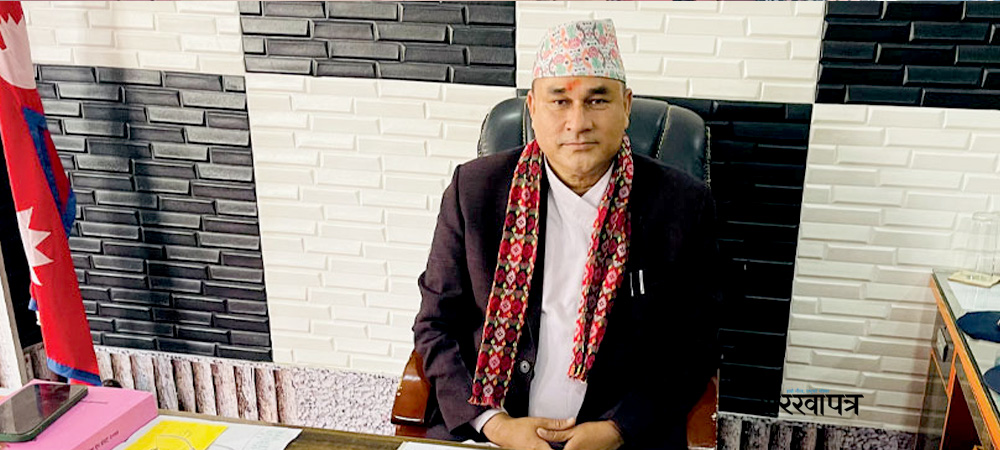

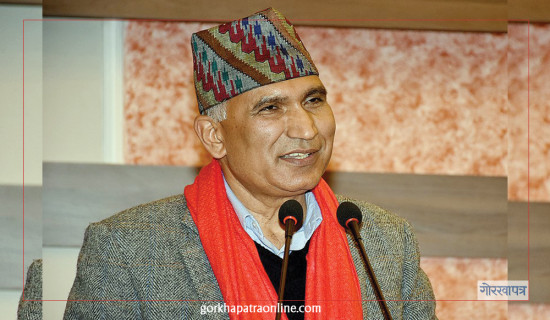
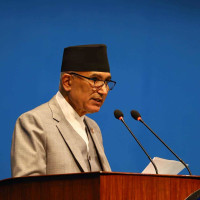
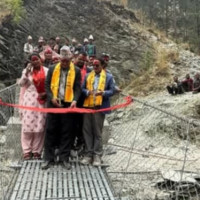

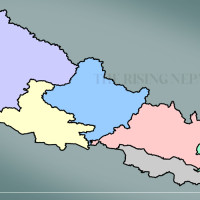




-original-thumb.jpg)
